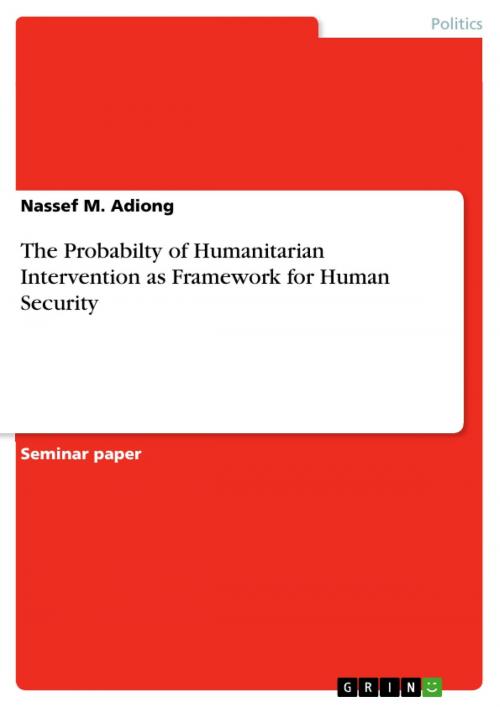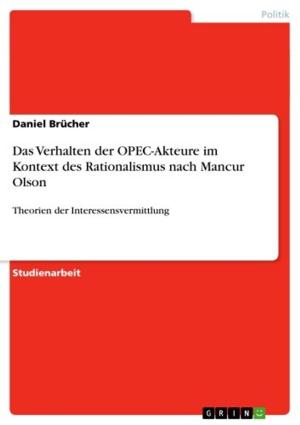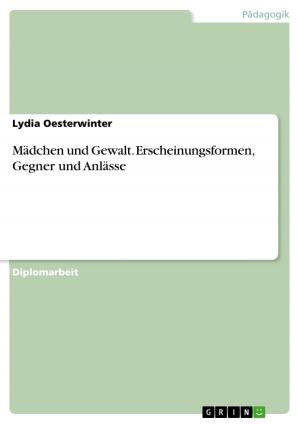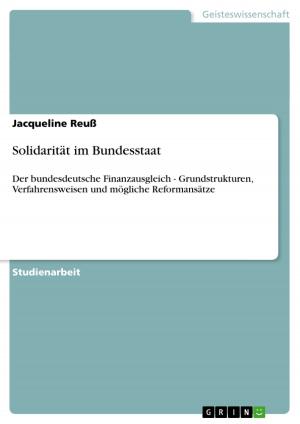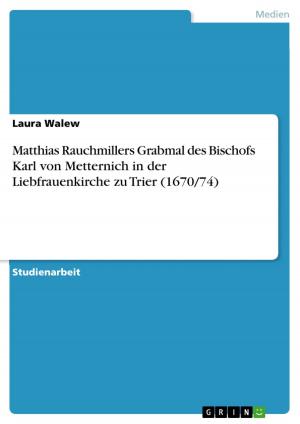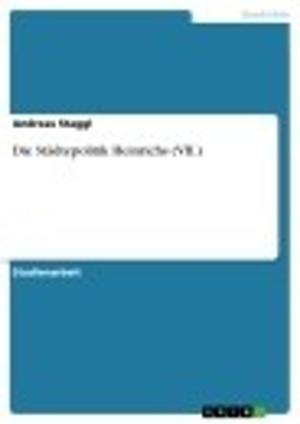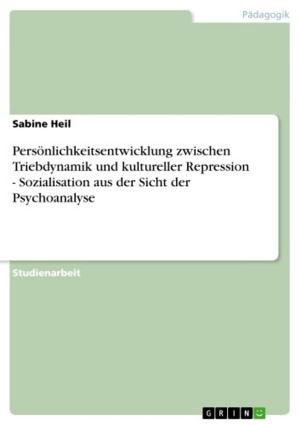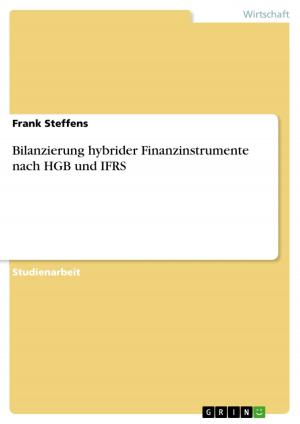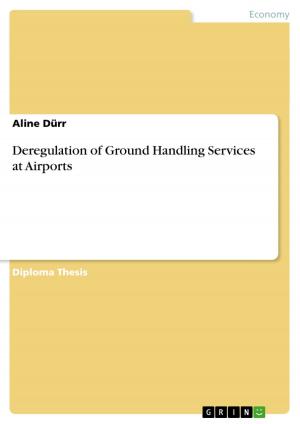The Probabilty of Humanitarian Intervention as Framework for Human Security
Nonfiction, Social & Cultural Studies, Political Science, International, International Security| Author: | Nassef M. Adiong | ISBN: | 9783656017103 |
| Publisher: | GRIN Verlag | Publication: | September 28, 2011 |
| Imprint: | GRIN Verlag | Language: | English |
| Author: | Nassef M. Adiong |
| ISBN: | 9783656017103 |
| Publisher: | GRIN Verlag |
| Publication: | September 28, 2011 |
| Imprint: | GRIN Verlag |
| Language: | English |
Seminar paper from the year 2011 in the subject Politics - International Politics - Topic: Peace and Conflict Studies, Security, grade: AA, Middle east technical university (Department of International Relations), course: Security Studies, language: English, abstract: The paper aims to present a probable humanitarian intervention as framework of human security. It objectifies humanitarian intervention as an element that will make human security autonomous but not separate nor fully independent from non-traditional security. Several literatures confuses the two terms as synonymous with each other, where others differentiated them explicitly. Thus the essay will address the ambiguity of both conceptions and discuss humanitarian intervention not as a different concept from human security but argues that it may be part and parcel of it, and in fact a possible framework to explain the paradigm of human security autonomous to non-traditional security. This contribution aspires for a sound, simple yet clear and unambiguous interpretation of human security to the evolving field of security especially as a sub-discipline of International Relations. In addition, it will also contend that there is a considerable middle way for both human security and non-traditional security in meeting a tangency point, and that is, a re-conceptualized version of human rights.
Nassef is a lifelong learner of comparative study between Islam and International Relations. He created the IR-IS Research Cohort on December 2012 that became Co-IRIS (International Relations and Islamic Studies Research Cohort) on November 2013. In addition to his service to profession, he founded the Philippine International Studies Organization (PHISO) on September 2015.
Seminar paper from the year 2011 in the subject Politics - International Politics - Topic: Peace and Conflict Studies, Security, grade: AA, Middle east technical university (Department of International Relations), course: Security Studies, language: English, abstract: The paper aims to present a probable humanitarian intervention as framework of human security. It objectifies humanitarian intervention as an element that will make human security autonomous but not separate nor fully independent from non-traditional security. Several literatures confuses the two terms as synonymous with each other, where others differentiated them explicitly. Thus the essay will address the ambiguity of both conceptions and discuss humanitarian intervention not as a different concept from human security but argues that it may be part and parcel of it, and in fact a possible framework to explain the paradigm of human security autonomous to non-traditional security. This contribution aspires for a sound, simple yet clear and unambiguous interpretation of human security to the evolving field of security especially as a sub-discipline of International Relations. In addition, it will also contend that there is a considerable middle way for both human security and non-traditional security in meeting a tangency point, and that is, a re-conceptualized version of human rights.
Nassef is a lifelong learner of comparative study between Islam and International Relations. He created the IR-IS Research Cohort on December 2012 that became Co-IRIS (International Relations and Islamic Studies Research Cohort) on November 2013. In addition to his service to profession, he founded the Philippine International Studies Organization (PHISO) on September 2015.
